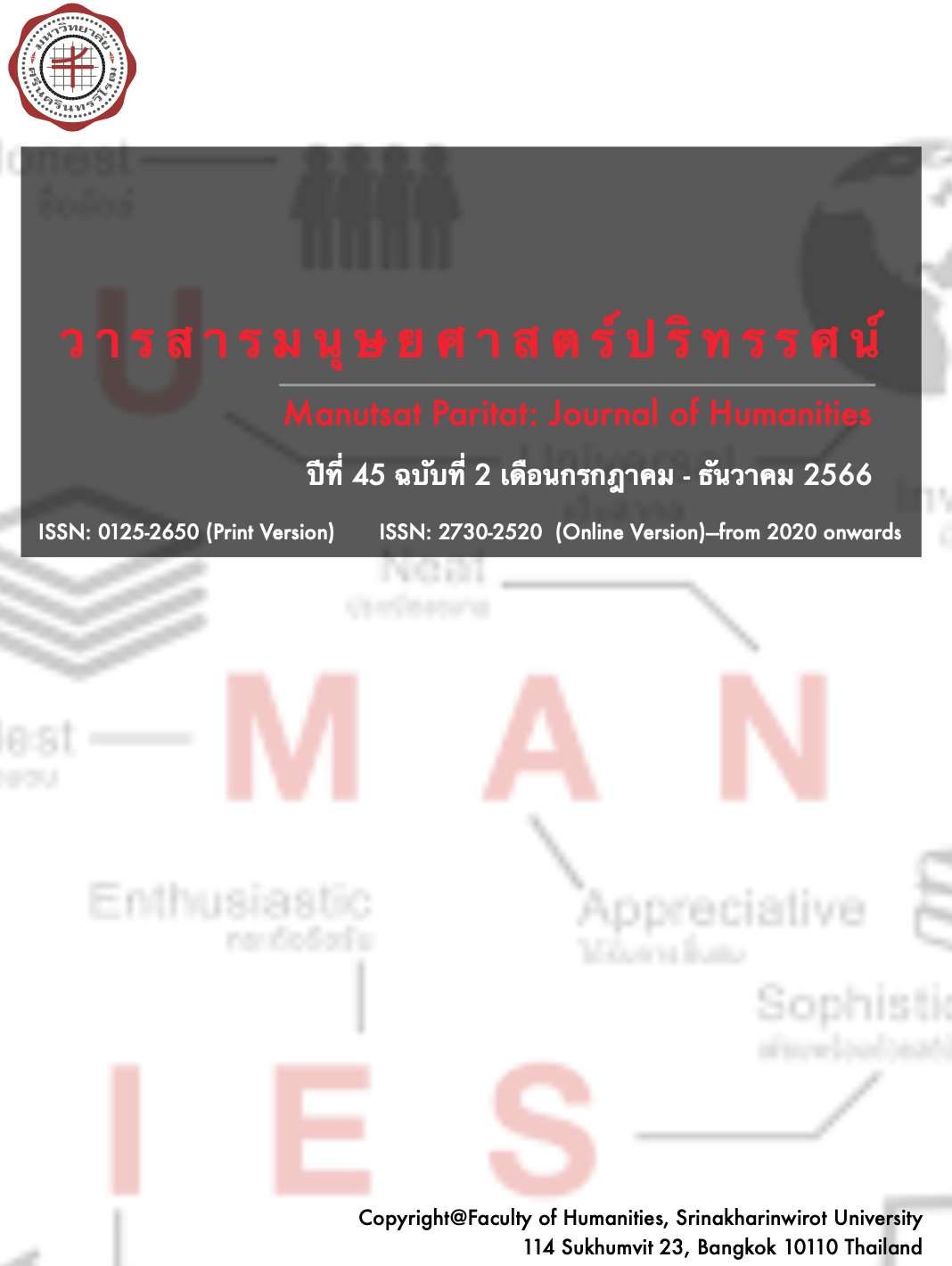A Study of Native English Speakers’ Usage of the English Present Tense and Their Metalinguistic Knowledge on Locations in Time and Aspects
Main Article Content
Abstract
This study aims to analyze the usage of the English Present Tense among native English speakers and their metalinguistic knowledge governing the selection of the tense forms. There were 3 research instruments employed in the study: 1) a background questionnaire; 2) a gap-filling test of the English Present Tense; and 3) an open-ended metalinguistic elicitation questionnaire. There were 10 well-educated native English speakers with a bachelor’s degree or higher, participating in the study. Their nationalities are British, American, and Australian. The results of the study revealed that the participants mostly used the Present Simple in accordance with the expected theories, followed by the Present Progressive, the Present Perfect, and the Present Perfect Progressive, respectively. The participants’ metalinguistic knowledge demonstrated diverse perceptions of the situations presented in the test instrument. The study provides evidence for the existence of L1 metalinguistic knowledge and offers a deeper understanding of how each tense form expressed the locations in time and aspects, influencing the language users’ perceptions of the situations. Furthermore, the study proposes a novel approach to teaching English tenses, suggesting that English teachers should emphasize factors that impact the selection of tense forms beyond grammatical markers like temporal adverbials and conjunctions. These factors include aspectual perceptions, text genres, and situational contexts.
Article Details

This work is licensed under a Creative Commons Attribution-NonCommercial-NoDerivatives 4.0 International License.
Any unauthorized copying, publication, reproduction or distribution of copyrighted works appeared in Manutsat Paritat: Journal of Humanities is an infringement of the copyright owners’ rights. To authorize the copying, publication, reproduction or distribution of copyrighted works to be appeared in other printed materials or any online media, please write to MPJHthaijo@gmail.com for permission.
References
Bégin, C. (2003). Expressing duration and temporal relationships by means of the present perfect progressive. Revue Québécoise de Linguistique, 32(2), 116-136. https://doi.org/10.7202/017545ar
Comrie, B. (1976). Aspect. Cambridge University Press.
Comrie, B. (1985). Tense. Cambridge University Press.
Falk, Y., Lindqvist, C., & Bardel, C. (2015). The role of L1 explicit metalinguistic knowledge in L3 oral production at the initial state. Bilingualism: Language and Cognition, 18(2), 227-235.
Gombert, J. E. (1992). Metalinguistic development. The University of Chicago Press.
Guest, J. (1976). Ordinary people. COHA Corpus. https://www.english-corpora.org/coha/
Harland, M. (1870). At last. COHA Corpus. https://www.english-corpora.org/coha/
Isarankura, S. (2008). Acquisition of the English article system by Thai learners: An analysis of metalinguistic knowledge in English article use [Unpublished doctoral dissertation]. Chulalongkorn University, Bangkok, Thailand.
Isarankura, S. (2011). Conceptualizations of tense and aspect in English among Thai learners. Dhurakij Pundit University, Bangkok, Thailand.
Klein, W., & Li, P. (2009). The expression of time. Walter de Gruyter GmbH & Co. KG.
McManus, K. (2019). Awareness of L1 form-meaning mappings can reduce crosslinguistic effects in L2 grammatical learning. Language Awareness, 28(2), 114-138.
Quirk, R., Greenbaum, S., Leech, G., & Svartvik, J. (1985). A comprehensive grammar of the English language. Longman Group Limited.
Smith, C. S. (1991). The parameter of aspect. Kluwer Academic Publishers.
Trowbridge, J. T. (1866). Lucy Arlyn. COHA Corpus. https://www.english-corpora.org/coha/
Watson, A. M., & Newman, R. M. C. (2017). Talking grammatically: L1 adolescent metalinguistic reflection on writing. Language Awareness, 26(4), 381-398. https://doi.org/10.1080/09658416.2017.1410554
Worathumrong, S. (2015). A pragmatic study of compliments and compliment responses by Thais and Americans: Cross cultural, interlanguage and metalinguistics studies [Unpublished doctoral dissertation]. Chulalongkorn University, Bangkok, Thailand.
Yule, G. (1998). Explaining English grammar. Oxford University Press.


